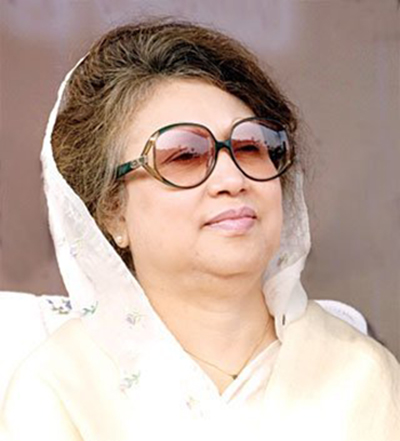Bangladesh’s opposition accused authorities of placing their leader under virtual house arrest Thursday as tens of thousands of troops were deployed across the country ahead of elections next month.
Bangladesh's opposition accused authorities of placing their leader under virtual house arrest Thursday as tens of thousands of troops were deployed across the country ahead of elections next month.
Amid growing violence in the build-up to the January 5 general election, the main opposition Bangladesh Nationalist Party (BNP) said police were barrin g anyone from visiting their leader Khaleda Zia at her home in Dhaka.
g anyone from visiting their leader Khaleda Zia at her home in Dhaka.
The move comes after Zia, a two-time former premier and arch rival of current Prime Minister Sheikh Hasina, called for supporters to stage a mass march on the capital this Sunday aimed at scuppering the polls.
The BNP is one of 21 opposition parties which are boycotting the elections over Hasina's refusal to stand aside and allow a neutral caretaker government to organise the contest.
The country's largest Islamist party, Jamaat-e-Islami, has also been banned from taking part.
"Since yesterday she has been under virtual house arrest," BNP vice-president Shamsher Mobin Chowdhury told AFP.
"Police are not allowing anyone, including party leaders and activists, to meet her. It is part of a government move to foil the December 29 march for democracy."
Deputy commissioner of Dhaka police Lutful Kabir confirmed that extra officers had been deployed outside Zia's home in the upmarket Gulshan neighbourhood but said the move was designed to "enhance her security".
Police confirmed two senior BNP members, including a current lawmaker, were detained outside Zia's home on Wednesday night but denied the arrests were made because they wanted to meet her.
With Hasina and her Awami League party determined the election goes ahead, troops are being sent to nearly every corner of the country at the end of what has been an unprecedented year for political violence.
A total of 269 people have been killed since January, either in protests at the elections or by Islamists who have seen several of their leaders sentenced to death from crimes dating back to the 1971 independence war.